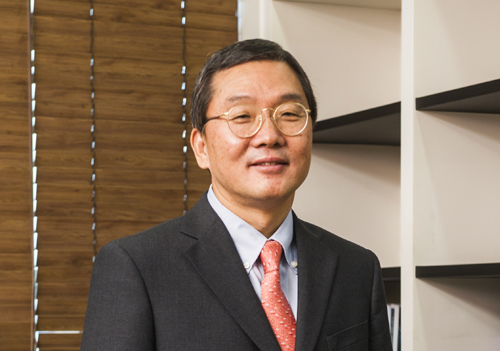국제
ToolGen secures 30.0 billion KRW to seek new growth engines in various fields
바이오스펙테이터 Sungmin Kim 기자

Korea’s biotechnology company ToolGen will invest 30.0 billion KRW in diversifying its portfolio in the agriculture/livestock and pharmaceutical sectors, while laying out its initial public offering plan in the KOSDAQ market.
In its regulatory filing on January 5, ToolGen announced its capital increase through third-party allocation by issuing new stock worth 30.0 billion KRW. The capital increase was made available by InterVest (10.0 billion KRW), KTB Network, IMM Investment, Smilegate Investment, and KB Investment & Securities.
According to the Financial Supervisory Service, ToolGen decided to issue a total of new 560,164 stock (53,600 KRW per share). The cash will be used to upgrade its existing facilities (6.5 billion KRW), and the remaining 23.5 billion KRW will be injected to diversity its portfolio.
Based on its CRISPR/Cas9 gene editing platform technology, ToolGen has quickened its pace of commercializing a variety of products in the agriculture/livestock and pharmaceutical development sectors, while seeking closer collaboration with other companies at home, and abroad.
ToolGen executed a technology transfer contract with Monsanto, the most innovative breeding company in crops and plant, while signing a memorandum of understanding with plant-based protein drug research companies, such as Bioapp of Korea, PLANTeDIT of Ireland, and Genovo Bio of China.
In particular, ToolGen has focused on the recently spotlighted new-generation immuno-oncology development. The company presented clinical results that demonstrated the enhanced function of chimeric antigen receptor T cells (CAR-T cell) via its CRISPR/Cas9 gene editing platform at the American Society of Hematology (ASH) Annual Meeting held December 9–12, 2017, in Atlanta, Georgia.
The results from the CRISPR/Cas9 system confirmed that electropolation-based gene editing delivery into T cells enables the removal of diacylglycerol kinase (DGK), which results in better antitumor activity. The DGK gene is highly expressed in tumor infiltrating lymphocytes, and is responsible for inhibiting downstream signaling of T-cell receptors. In a rat model with brain tumor (GBM), the antitumor activity was more significant in the DGK-removed CAR-T groups, than in vehicle control.
ToolGen has also, via application of the CRISPR/Cas9 system, been devoting itself to the development of gene therapies that target hemophilia and Charcot-Marie-Tooth disease.


















